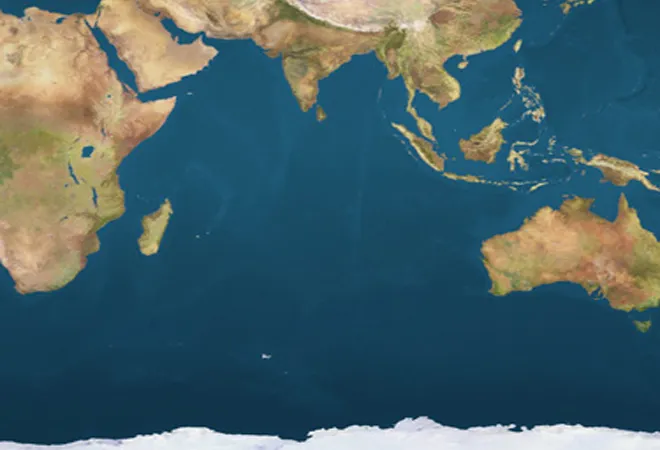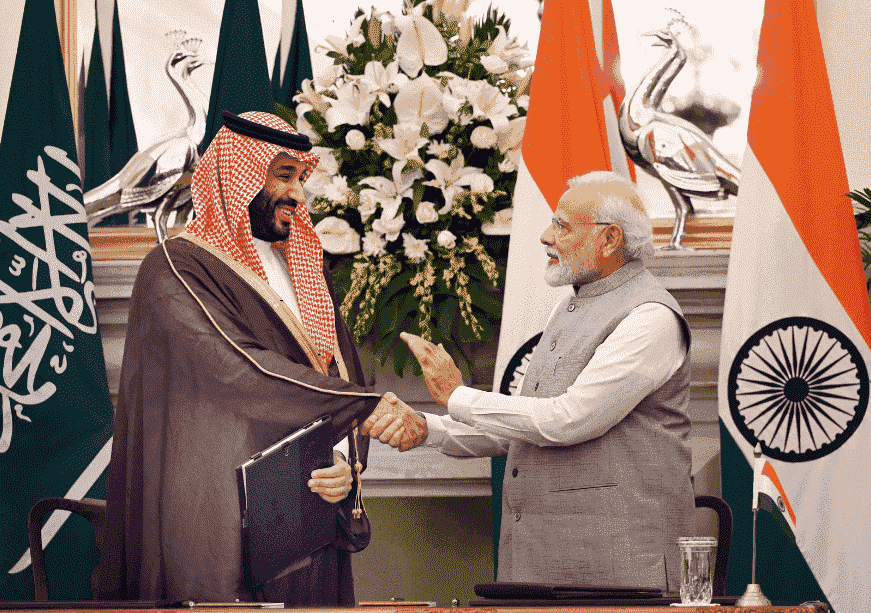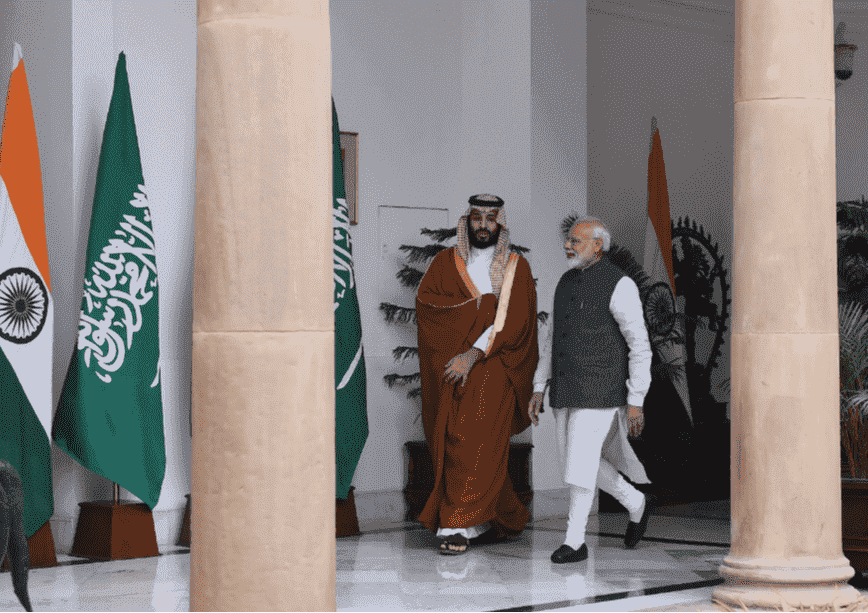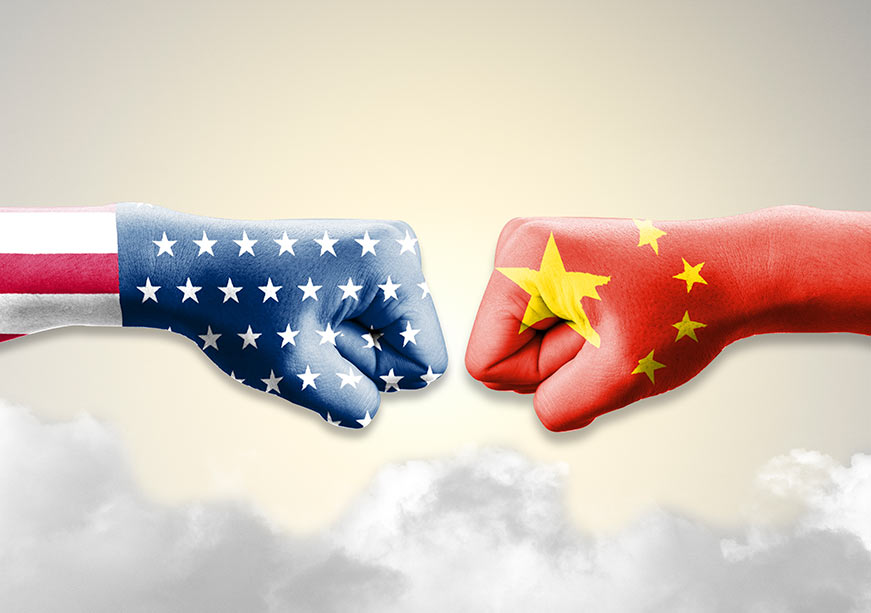The 2008 Mumbai Terrorism act dented India’s image and brought its lackadaisical coastal security architecture and meagre maritime domain awareness (MDA) to light. The event served as a catalyst for India to recalibrate its maritime strategy by emphasising that incidents at sea have massive consequences on land.
Soon after 26/11, the Indian Navy launched the Information Management and Analysis Centre (IMAC) in Gurugram. Jointly administered by the Indian Navy and Indian Coast Guard, its specific task is to enhance India’s National Maritime Domain awareness by tracking fishing boats and commercial vessels near India’s coast using data feed from space-based and terrestrial sensors as well as from other naval sources.
In early 2017, at the inaugural summit of the Indian Ocean Rim Association (IORA) in Indonesia, India made two key announcements regarding cooperation with member countries to enhance international Maritime Domain Awareness in the Indian Ocean. First, India’s intent to host the Information Fusion Centre – Indian Ocean Region (IFC-IOR) in India using white Shipping Agreements. Second, India proposed the setting up of the IORA Centre of Excellence (ICE) in the coastal city of Kochi in India. A network of think tanks was envisaged to develop a resource repository on Ocean, available on a digital platform to policymakers, academics and researchers in all IORA member states.
While there has been progress on the white shipping agreements and the setting up of the Information Fusion Centre for shared Maritime Domain Awareness enhancement, there has been no progress reported on the ICE or the network of think tanks.
Information Fusion Centre – IOR
The scale and scope of the white commercial maritime activities in the Indian Ocean make it untenable for individual countries to keep track of the grey foreign vessels or the black illegal vessels. Collaborative efforts are essential to address the twin requirements of situational awareness and law enforcement to safeguard global commons. IFC-IOR was launched in Gurugram in the National Capital region, in Decmeber of 2018. It is collocated with Information Management and Analysis Centre (IMAC) which is jointly administered by the Indian Navy and Indian Coast Guard. Its task is to go beyond the bilaterals and collate, fuse and disseminate intelligence on ‘White Shipping’ in the Indian Ocean. For common understanding of IORA nations, the threats in the region have been divided into six broad categories: Piracy/Sea Robbery/Sea Theft, Maritime Terrorism, Contraband Smuggling, Irregular Human Migration, Illegal Unreported Unregulated (IUU) Fishing and Maritime Incidents. Four sectors are being undertaken by the Centre to assess and analyze the maritime safety and security situation: Gulf of Guinea (GoG), Gulf of Aden, Arabian Sea, and the Bay of Bengal and South East Asia.
India has already signed information exchange agreement with 22 countries and one multinational construct — the Virtual Regional Maritime Traffic Centre which facilitates 30 other countries to create a virtual network for exchange of information under the international cooperation framework. The initial information Exchange at the IFC-IOR is being undertaken by virtual means using telephone calls, faxes, emails and video conferencing over internet. The IFC-IOR also aims to base 40 international liaison officers from its International partner countries. Currently only a few countries like France and Singapore have appointed liaison officers while UK has announced its intent to appoint one.
Since March 2018, France is focusing its efforts under the Joint Strategic Vision of India-France Cooperation in the Indian Ocean Region for reinforcing assets for combating piracy and all kinds of maritime trafficking in the Southern Indian Ocean.
The shared MDA efforts point to a major shift in India’s foreign policy approach. Since the late 1960s till 2015, India used non-alignment as a policy tool to keep distance from the shared security providers in the Indian Ocean. In 2015, Prime Minister, Narendra Modi launched the Security and Growth of All in the Region (SAGAR)– India’s Vision for defence and security in the Indian Ocean Region in Seychelles. The backbone of SAGAR’s architecture is cooperation. Under the programme, Modi announced the ambitious Coastal Surveillance Radar System (CSRS) project to enhance international maritime domain awareness network establishment. The CSRS includes eight surveillance radars each in Seychelles and Mauritius, six in Sri Lanka, and ten in Maldives, all linked to over 50 sites on the Indian coast with a primary objective of coastal surveillance including small vessels that escape traditional radars. Recently, in October 2019, Bangladesh signed a pact for India to develop a coastal surveillance system. A similar arrangement is also supposed to be on way with Myanmar and Thailand.
There are already three similar MDA initiatives globally: Singapore focuses on south-east Asia; Madagascar is run by the European Union to focus on the African coast and the Southern Indian Ocean; and the Mediterranean Sea MDA focuses on Europe. The IFC IOR, once fully operational, is poised to cater to the information needs of the strategically most important, busy and large sea lanes of communication ning the Indo-Pacific waters.
India should learn from Singapore’s challenges in leading common maritime domain awareness for South East Asian countries: that information sharing should necessarily be followed by information sense making. “Comprehensiveness should lead to greater comprehension”. Practically this is hard to implement. While member countries agree that information sharing is the only path toward creating common operational picture to address common maritime threats, standardisation issues are being faced by them during fusing and analyses of data. Even when the countries are agreeing to share information, they are ending up duplicating efforts either due to extra regional power influences, or due to domestic political motivations or simply because they have different domestic organisational formats for data storage and analysis. A wide range of stakeholders fail to recognize that shared development spaces will lean on non-standard domestic institutional structures for data. Singapore’s member partners also highlight a need to converge other adjacent domains including air, space and cyber with the sea and terrestrial domains. The countries are grappling with data integrity and restricted jurisdiction of law enforcement agencies. How India intends to overcome these in IFC-IOR or ICE is not clear.
Moreover, while a need of network of think tanks to promote academic information and data sharing on ocean resources is essential for any region, there is also a need for a strong think tank network to develop policy options to address issues of maritime security, institution building and shaping strategic discourse on the Indian Ocean maritime order. India’s ICE announcement neither gives adequate clarity on the availability of domestic institutional support for an academic resource centre nor on a network of think tanks for common policy studies.
Traditionally, for India, information sharing liaison arrangements of a bilateral nature have been more productive. Multilateral arrangements give mixed results because either the domestic information agencies have restricted scope in coordinating their relationships with their own foreign services or the foreign services themselves do not willingly share useable data equitably with all their foreign counterparts unless there is a specific short term goal being met through a certain piece of data or information sharing.
The most recent IFC IOR report of October 2019 reported that an Iranian flagged crude oil tanker was reportedly hit in the Red Sea by two suspected rockets/missiles on 11 Oct, 2019 off the coast of Saudi Arabia. The details of the vessel still remain unconfirmed but there were reports pertaining to oil spill in the Red Sea. While the report shared the information about the vessel and activities following the same, it is not evident from the report how each member country made sense of this information under a cooperative framework. The US-Iran conflict may give IORA members an opportunity to test how information sharing is followed by information sense making towards fostering peace and stability. Given the complexities of India’s relations with Iran and the United States, India may be tested as a neutral net security provider in the Indian Ocean region. India needs to enhance its own strengths vis a vis China and other extra regional powers rather than just expand partnerships to fill the information voids.











